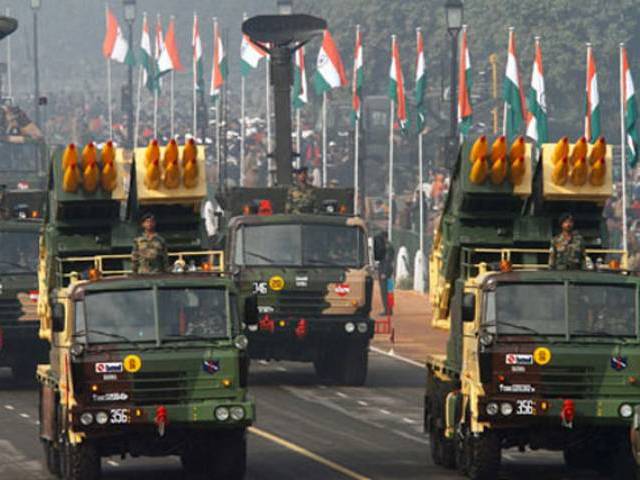
“This [Indian expansion] has required us [Pakistan] to move towards full spectrum deterrence for responding to threats at the tactical level, the counter-force level, and the counter-value level,” said former Pakistan envoy Zamir Akram while addressing a recent seminar on “South Asian Nuclear Doctrines: Deterrence Equilibrium and Strategic Stability”, organised by the Strategic Vision Institute.
Alarming arms race among Pakistan, India and China
“We need to cover all types of threats,” Akram added.
The former envoy who represented Pakistan in Geneva, noted that threats to the country were growing in the region least because of the large scale acquisition of military hardware by India, its public rejection of the no-first-use policy for nuclear weapons, determination to carry out disarming strikes against Pakistan, and its espousal of dangerous and destabilising doctrines such as the cold-start doctrine.
These threats, he pointed out, meant that Pakistan could no longer sit content on traditional deterrence of nuclear weapons and must prepare to deal with these threats.

Akram warned that strategic stability or instability in South Asia was not just about Pakistan and India, but involved larger nations in the vicinity as well, including the likes of China and US.
This complicated equation was causing its destabilisation, which has been further “accentuated by developments outside the nuclear realm, that is developments in Occupied Kashmir… and use of terrorism by India through proxies based in Afghanistan,” he said.
Referring to a recent statement from Massachusetts Institute of Technology scholar Vipin Narang and assertions by former Indian National Security Adviser Shiv Shankar Menon that India could shed its no-first-use doctrine and carry out pre-emptive strikes against Pakistan to disarm its nuclear-tipped neighbour, the former envoy said this did not come as a surprise. He noted that certain quarters in the Pakistani security apparatus never believed in India’s declaratory statement of no-first-use.
Pakistan claims India's tallest flag an instrument for 'espionage'
Menon and Narang’s statements, Akram observed, pointed towards Indian efforts to build capacity for carrying out ‘disarming strikes’ against Pakistan.
Dr Zafar Nawaz Jaspal, who teaches at the Quaid-i-Azam University, noted that both Pakistan and India lacked the “proficiency in decapitation capability”.
He said he was cautiously optimistic about deterrence stability continuing since the two hostile neighbours were aware of the colossal cost its failure would impose.
However, he noted that constant war-mongering by Indian Prime Minister Narendra Modi, an arms race and presence of non-state actors was constraining the deterrence stability.
SVI President Dr Zafar Iqbal Cheema was hopeful that India would stay away from the ‘disarming strikes’.
“A successful disarming, decapitating or a pre-emptive strike against adversary possessing credible nuclear weapons capability is considered an impossibility as a rational decision,” he maintained hoping that India would rather act as “a rational actor and would not undertake this dangerous exercise of launching a pre-emptive strike.”
The seminar coincided with the anniversary celebrations of the Islamabad-based think tank that specialises in issues related to strategic stability.
Published in The Express Tribune, April 21st, 2017.


1727778647-0/diddy-(16)1727778647-0-165x106.webp)

1732014631-0/BeFunky-collage-(71)1732014631-0-165x106.webp)
1732012115-0/Untitled-design-(14)1732012115-0-270x192.webp)




1732011525-0/Express-Tribune-(8)1732011525-0-270x192.webp)






COMMENTS (9)
Comments are moderated and generally will be posted if they are on-topic and not abusive.
For more information, please see our Comments FAQ